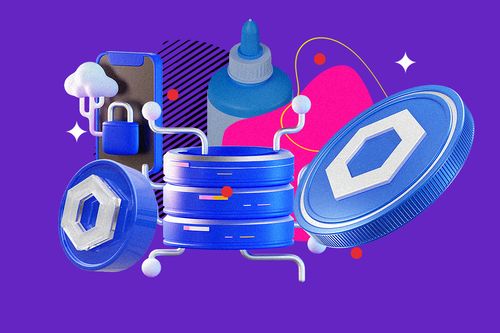

Oracle Wars: Chainlink vs API3
To what extent should blockchain data sources be decentralized? The answer to that question, my young padawan, will determine whether Chainlink is going to sink.
Updated Jun 7, 2022
Many companies on MoneyMade advertise with us. Opinions are our own, but compensation and in-depth research determine where and how companies may appear.
Crypto
DeFi
Technology
APIs (Application Programming Interfaces) are the glue that holds our digital world together. For the uninitiated, APIs are pre-packaged lines of code that can be reused by other programs on request, substantially reducing the time, cost, and effort required to develop complex applications.
At a $3.7 billion market cap, Chainlink is the most valuable decentralized oracle network in the world.
The data and services provided by APIs are varied, ranging from weather snippets in Google to Twitter bot posts. Only thing is, traditional APIs are not natively compatible with blockchains, which severely limits the utility of Web3.
Source: API3 Medium
But a new crop of alternative oracles is currently gunning for the top spot, with API3 among the most promising of the bunch. In this article, I’ll break down the value propositions, technology, tokenomics and adoption metrics behind Chainlink and API3. That way, you can decide which of these oracles belong in your crypto portfolio.
Value proposition: Chainlink vs API3
Value proposition: Chainlink vs API3
At a $3.7 billion market cap, Chainlink is the most valuable decentralized oracle network in the world. And credit where credit is due, Chainlink solved the oracle problem very well. But in doing so, Chainlink also added some new problems into the mix.
Firstly, there’s a lack of transparency in the APIs that Chainlink oracles use, which makes it difficult to evaluate data quality. Secondly, Chainlink hasn’t introduced measures to deter oracles from relying on the same API providers. This, in turn, makes their data feeds vulnerable to single points of failure. What’s more, Chainlink and its oracle node providers act as middlemen between APIs and blockchains — even though blockchain technology was in fact created to cut out the middle man.